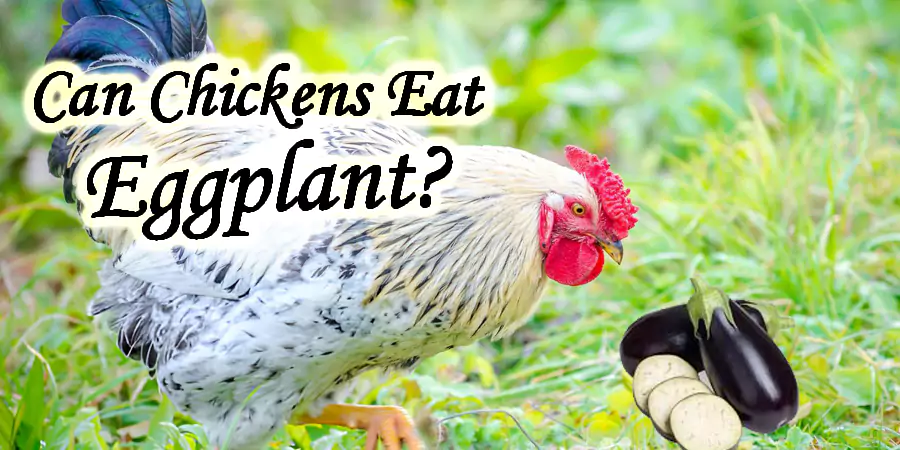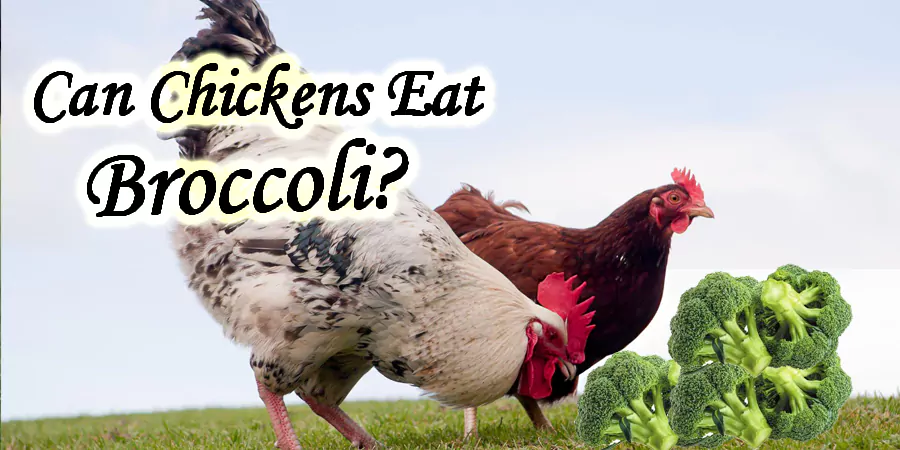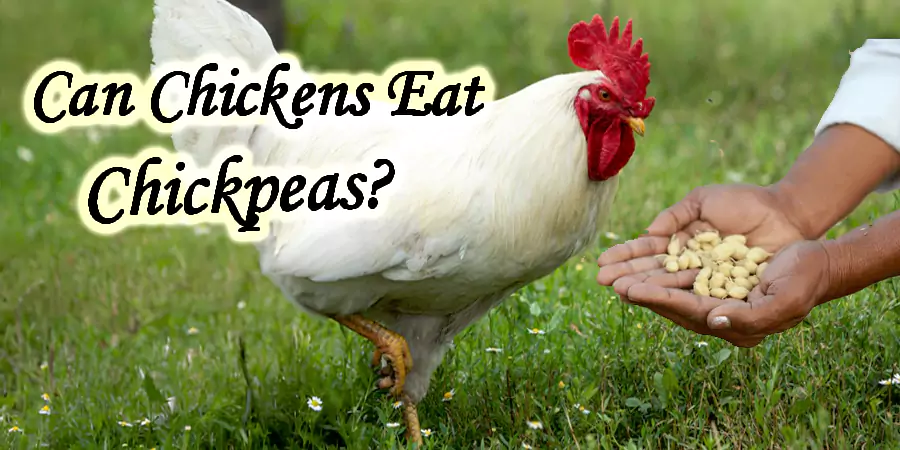Can Chickens Eat Eggplant? Discover the Surprising Truth!
Published: 4 Aug 2024
Chicken owners sometimes feel puzzled about using eggplant for their flock. If you are looking for a definite solution to the query: can chickens eat eggplant? Then you are at the right place. We will analyze the nutritional value of eggplant which is essential for chickens. You will understand the potential benefits and risks of eggplant for chickens.
Without delay, let’s crack the mystery and conclude if eggplant could be the next big thing in your chickens’ diet!

Can Chickens Eat Eggplant? Discover the Surprising Truth!
Is Eggplant Bad for Chickens?
Eggplant is not bad for chickens if properly prepared. It contains a natural chemical named solanine which can be harmful for the flock. If you limit the concentration of solanine compound then there is nothing to worry about. We will suggest some ideas to offer eggplant safely to your flock.
Nutritional Content of Eggplant
The dark purple vegetables offer some nutritional benefits for the flock. This breakdown will help you to understand its nutritional value. Eggplants are packed with vitamins like vitamin C and K. Vitamin C helps to strengthen the immune power. Vitamin K supports blood clotting and improves bone health. Vitamin B6 is also available in small amounts.
Eggplant has antioxidants that are helpful to combat harmful radicals in the body. Nasunin is a type of antioxidant available in eggplant. The fiber content of eggplant supports in digestive process of chickens. Eggplant is a low-calorie food that helps to maintain a weight balance,
How to Prepare Eggplants for Chickens?
Preparation is the most important phase to make eggplant safe for chickens. Here are some simple steps that make eggplant a healthy food.
- Choose Fresh Eggplant: Select fresh and unspoiled eggplant with smooth and glossy skin. Unripe and overripe eggplants are not suitable for chickens.
- Clean the Eggplant: After selecting the desired eggplant, thoroughly wash it under running water. Removal of pesticide residues or dirt is important to prevent digestive issues.
- Peel the Skin: It is an optional step that helps reduce the level of solanine. If you decide to not peel then the cooking process is necessary.
- Remove the Eggplant Seeds: We recommend you remove eggplant seeds because it can create digestive issues in chickens.
- Chop the Eggplant: Chop or slice the eggplants into small pieces according to the size of your flock. It will prevent choking issues in chickens.
- Cook the Eggplant: We always prefer to offer cooked eggplants to our backyard friends. It will minimize the solanine level in eggplant.
- Cool Eggplant to Room temperature: Never serve hot pieces of cooked eggplant to your chicken. Let them cool down to room temperature.
- Introduce Gradually: Like any new food, offer eggplant in small amounts. After a careful analysis gradually increase its quantity.
- Feed in Moderation: Always take eggplant as an occasional diet for your chickens. Ensure its portion is under 5% of the total diet.
How to Feed Eggplants to Chickens?
After a proper preparation of eggplant, now we have to present it to chickens in engaging ways. We have some suggestions in this regard to get the attention of your flock.
- Serve cooked eggplant slices in the scattered form around the coop.
- You can thread pieces of cooked eggplant on a stick to make a skewer.
- Prepare a mixed trail by mixing eggplant with other vegetables.
- Take out eggplant flesh and mix it with other grains or yogurt.
- You can serve cooked eggplant in a puzzle feeder for mental stimulation.
- During hot days you can serve frozen treats of cooked eggplant.
- Make a hanging ball filled with cooked eggplant and let them play with it.
- Add some appealing flavor by mixing eggplant with herbs like basil.
- You can use cooked eggplant as a coating or topping in other treats.
In which forms Eggplants are Edible for Chickens
Offering eggplant or any other diet in a favorable form is very important. There are two possible forms to serve eggplant to chickens. Raw and cooked. Let’s analyze their pros and cons separately to select the beneficial form of eggplant for our flock.
Can Chickens Eat Raw Eggplant?
No, we are not recommending you to serve raw eggplant to chickens for various reasons. Raw eggplant contains a good volume of a harmful compound named solanine. If chickens have consumed raw eggplant in large amounts then solanine will pose a toxic threat to our flock.
Due to the tough parts of raw eggplant, chickens feel difficulty in digestion. Raw eggplant is more prone to be affected by pesticide residues or decontamination. So, we suggest not serving raw eggplant to chickens.
Can Chickens Eat Cooked Eggplant?
Yes, chickens can eat cooked aubergine/eggplant in moderation. We prefer a cooked form of eggplant because it has less concentration of solanine compound. The cooking process of eggplant helps to neutralize the toxic risk from solanine compounds. Cooked eggplant is a tender and delicious food that chickens can easily digest.
We recommend you chop the eggplant and thoroughly bake, steam, or boil it till it gets tender. Never add oils and seasonings to it during the cooking process. Let the cooked eggplant cool down and serve it in moderation using engaging ways.
Which Part of Eggplant is Edible for Chickens?
Eggplant has some parts with their specific properties. It is vital to understand their pros and cons individually. We have decided about their use with our experience and scientific facts. Here is an overview of each part of the eggplant.
Can Chickens Eat Eggplant Skin?
Yes, chickens can consume eggplant skin with some precautionary measures. Eggplant skin contains the toxic compound solanine which can be harmful for chickens if served in abundance. The skin is a tougher and fibrous part of eggplant which is difficult to consume for chickens.
To manage these issues you should chop and cook eggplant. You can mix eggplant skin with other foods. Introduce cooked eggplant skin gradually to your flock. After vigilant monitoring adjust its quantity but ensure moderation.
Can Chickens Eat Eggplant Leaves?
No, chickens should not eat eggplant leaves. Like other nightshade families (tomatoes & potatoes), eggplant leaves have the toxic compound “solanine”. It can cause digestive upset in chickens. Leaves are tough and fibrous parts of eggplant which can create choking issues for young chickens.
Eggplant leaves are a potential source of pesticide residues and dirt. The contamination is very dangerous for chicken’s health. So, we advise you to stick to safer parts of eggplants and avoid offering eggplant leaves to your flock.
Can Chickens Eat Eggplant Stems?
No, we are not in favor of serving eggplant stems to chickens. The reasons behind this rejection are the same as in the case of eggplant leaves. Eggplant stems contain solanine and pesticide residues. These are harmful compounds for chicken’s health. Eggplant stems are even harder to digest than leaves. So, eggplant stems are not recommended for chickens.
Can Chickens Eat Eggplant Seeds?
Yes, chickens can have eggplant seeds with few considerations. Eggplant seeds contain solanine compounds but less in concentration. These are small and chickens can easily consume them without any choking problems.
We suggest you to serve eggplant seeds after mixing with other grains or seeds like rice. Offer cooked eggplant seeds to reduce the solanine level. Keep its portion under 5% of the total diet of chickens.
Conclusion
We have concluded that chickens can eat eggplant sparingly with some caution. We have rejected the use of raw eggplant and recommended the use of only cooked eggplant for chickens. Additionally, eggplant leaves and stems are not healthy for chickens because of a harmful compound “solanine”.
Best practices to prepare and feed eggplant to the flock must be followed in a true sense. Decontamination of eggplant is crucial for the safety of chickens. To maintain a well-balanced diet for chickens, offer eggplant in moderation. Careful observation is vital to adjust its quantity.

- Be Respectful
- Stay Relevant
- Stay Positive
- True Feedback
- Encourage Discussion
- Avoid Spamming
- No Fake News
- Don't Copy-Paste
- No Personal Attacks

- Be Respectful
- Stay Relevant
- Stay Positive
- True Feedback
- Encourage Discussion
- Avoid Spamming
- No Fake News
- Don't Copy-Paste
- No Personal Attacks


